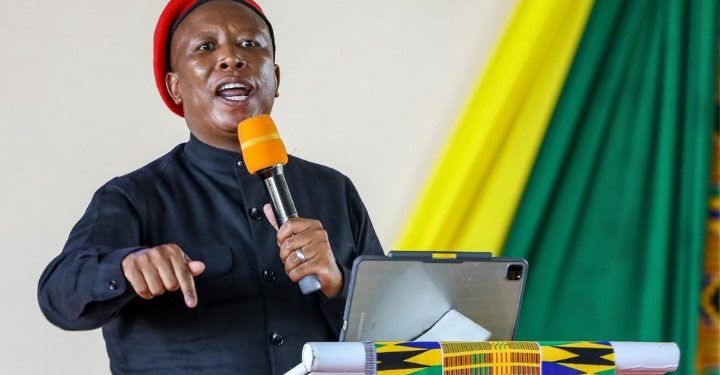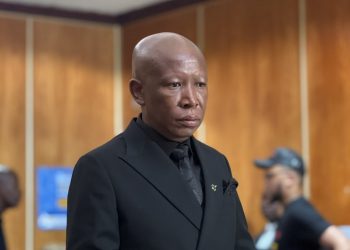The Economic Freedom Fighters (EFF), led by Julius Malema, are attempting to position themselves as a potential partner in South Africa’s Government of National Unity (GNU) as divisions within the current alliance grow more pronounced. Malema has suggested that the GNU—comprising the ANC, DA, and several smaller parties—is on the verge of collapse due to deepening ideological rifts.
According to Malema, the EFF could step in to stabilize the government, but only if the DA is removed from the coalition. He pointed to the ANC’s recent passage of the 2025/26 National Budget with the support of minor parties, while the DA withheld its backing, as evidence of the GNU’s fragility. “We have demonstrated to South Africans that this GNU is dysfunctional—it has already crumbled,” Malema declared.
He cited ongoing policy disputes, including clashes over the Basic Education Laws Amendment (BELA) Bill, as proof of fundamental incompatibility between the ANC and DA. Malema’s long-term strategy hinges on these tensions escalating, particularly as the ANC approaches its 2027 elective conference. “We are waiting patiently to enter this government,” he told supporters, adding, *“Siyangena”* (we are entering)—a hint that the EFF could align with the ANC if relations with the DA, particularly under Helen Zille’s leadership, deteriorate further.
Beyond domestic policy disagreements, Malema has amplified geopolitical rhetoric to drive a wedge between the ANC and DA. By framing the DA as an extension of U.S. interests and positioning the EFF as defenders of South African sovereignty, he aims to appeal to ANC factions wary of Western influence.
However, obstacles remain. The EFF previously rejected joining the GNU in 2024 due to the DA’s inclusion, and it remains uncertain whether the ANC would be willing to restructure the alliance. Still, with Malema’s calculated maneuvering and the GNU’s growing instability, the EFF could emerge as a key player in South Africa’s evolving political landscape.






















